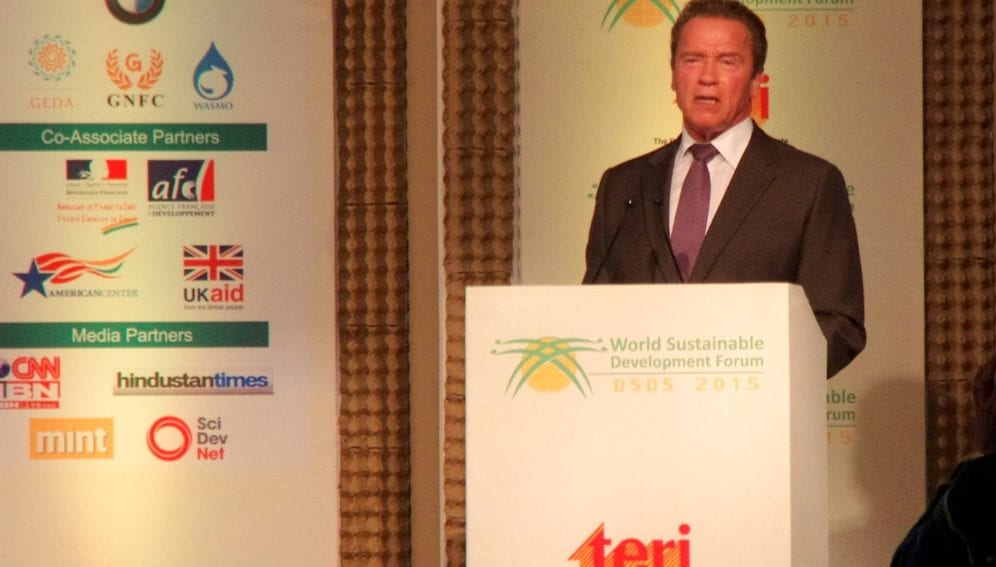By: Smriti Daniel
Send to a friend
The details you provide on this page will not be used to send unsolicited email, and will not be sold to a 3rd party. See privacy policy.
[NEW DELHI] The 15th Delhi Sustainable Development Summit (5—7 February) provided an opportunity for stakeholders to freely deliberate the international development agenda ahead of the UN summit on Sustainable Development Goals (SDGs) in September and the UN Climate Change Conference in December.
“2015 is our best chance, and for our generation, the only chance we have to change the course of global diplomacy to the sustainable development agenda,” Jeffrey D. Sachs, director of The Earth Institute and special advisor to the UN secretary-general, said on the final day of the conference.
Stakeholders covering the spectrum from politicians to scientists, businesspeople and activists, engaged over the course of three days on issues of sustainable production and consumption, the transition from MDGs to SDGs, and improved energy efficiency in the corporate sector. The thematic tracks went into more detail on such topics as clean technologies, water management and sustainable urban transport.
Speakers, beginning with the former governor of California and founding chair of R20: Regions of Climate Action, Arnold Schwarzenegger, argued that the fight against climate change need not detract from economic development. Fresh from the sets of ‘Terminator 5’, the actor vowed to “terminate” climate change and cited the success of California’s ‘green economy’. “We know in California that we don’t have to choose between the environment and the economy. We know the opposite is true,” he said.
“A country of 1.2 plus billion people can’t possibly shrug its shoulders and say, look it’s for others to take action, we’ll not contribute”
R K Pachauri, TERI
India's minister of state for finance, Jayant Sinha called the debate between growth and preserving the environment a “false trade-off” and India’s minister of state for environment, forest and climate change Prakash Javadekar emphasised that while the SDGs were desirable, their fashioning and implementation must take into consideration “the inequities with which we live”.
Rajendra K. Pachauri, chair of the Intergovernmental Panel on Climate Change and director of The Energy and Resources Institute (TERI), which organises the annual event, told SciDev.Net that he saw the gathering as a “very useful supplement to the official process”.
The final day of the conference coincided with local elections in the national capital which has been ranked by WHO in a 2014 study as the most polluted city on the planet. Such rankings make it all the more important that events such as the Summit are held in India, says Pachauri.
“I think it’s important for India and Indians to be fully cognizant of the kinds of global challenges that are being faced, and that we have to be part of the solution, not merely a part of the problem,” Pachauri tells SciDev.Net. “A country of 1.2 plus billion people can’t possibly shrug its shoulders and say, look it’s for others to take action, we’ll not contribute.”
This article has been produced by SciDev.Net's South Asia desk.














